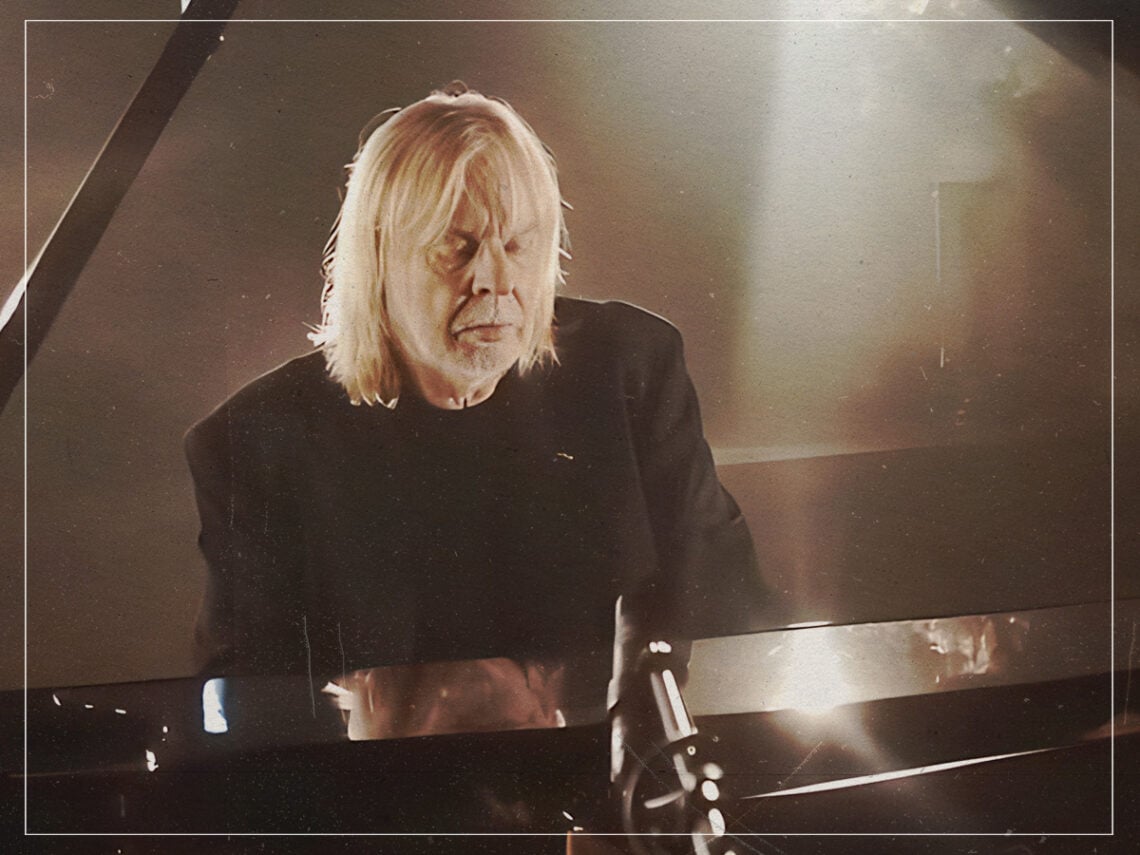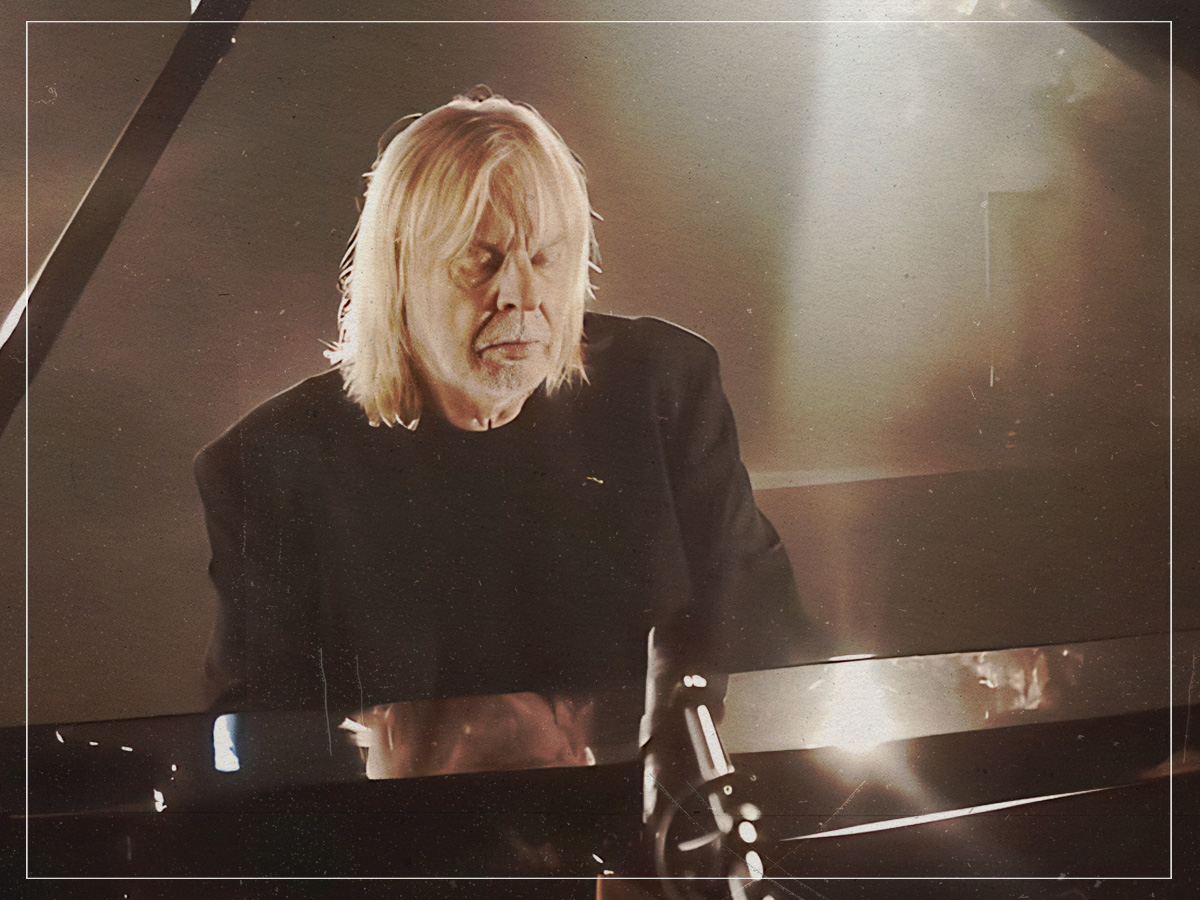
(Credits: Far Out / YouTube Still)
Sun 21 September 2025 18:30, UK
With a solo discography boasting over 100 albums, English keyboardist and composer Rick Wakeman is no stranger to versatility.
Wakeman’s brilliance was foundational to progressive rockers Yes and folk rock group The Strawbs, and his talents expanded into studio sessions with Lou Reed, Elton John and Marc Bolan. He also famously contributed to David Bowie’s otherworldly ‘Space Oddity’. He values sonic experimentation, finding a home in prog rock’s expansive scope and harnessing that energy beyond genre or convention. Fittingly, some of his favourite music follows suit. Ranging from rhythm and blues to heavy metal, his tastes — like him — are wildly unpredictable.
In conversation with Goldmine, Wakeman curated his top 10 albums that changed his life. Familiar pillars of his era make his list, including two pivotal debuts: The Who’s My Generation, and The Rolling Stones’ England’s Newest Hit Makers. He also includes Otis Redding’s ‘best of’ compilation and acknowledges the American singer-songwriter for being “so far ahead of the UK at the time”. A bit of a wild card: Lonnie Donegan’s 16 Greatest Hits makes the cut, as Wakeman credits his innovation of ‘skiffle’ — a branch of folk music with an element of improvisation — as “the forerunners of rock and roll”.
At the top of his list is English rock band Deep Purple’s debut album, Shades of Deep Purple. Recorded in just three days in May 1968, the album features four original songs and four covers, creating a blend of progressive and psychedelic styles. Explaining his choice to include Shades of Deep Purple, Wakeman said: “This is an absolute classic, with phenomenal Hammond from Jon Lord and great guitar and drums from Ritchie Blackmore and Ian Paice, respectively. The two other original members, Nick Simper on bass and Rod Evans on vocals, make up the original lineup.”
On the album that gifted us with the psychedelic trip ‘Hush’, Shades of Deep Purple also includes a rendition of The Beatles’ ‘Help’, which Wakeman names as “probably the best cover of this Beatles song ever”. With their version, Deep Purple turns the upbeat, two-minute song into a fucking six-minute saga, crafted with an ambition that Wakeman surely identifies with. Opening with futuristic keys and chimes, the tune mimics the sound of a spaceship taking flight. Rod Evans’ voice wistfully escapes into the ether, capturing the sadness entrenched in Lennon and McCartney’s lyrics.
Jon Lord’s forlorn organs revive the track entirely; they are the backbone of the song and, arguably, personify the essence of ‘Help’ more emphatically than the original. Deep Purple managed to take on the difficult task of reimagining The Beatles and, in the process, invented an entirely new world.
Wakeman’s acknowledgement of The Beatles continues, as he calls Sgt Pepper’s Lonely Hearts Club Band another life-changing album. “To be honest, it’s the only Beatles album that really got to me,” he admits. “George Martin brought the wonderful songs onto a new plane… pure concept genius.” It is easy to see how Wakeman would appreciate the monumental goddamn world-building that shaped Sgt Pepper, considering his later trilogy of concept albums in the mid-1970s: The Six Wives of Henry VIII in 1973, Journey to the Centre of the Earth in 1974 and The Myths and Legends of King Arthur and the Knights of the Round Table in 1975.
Clearly, Wakeman appreciates world-building through music. Crafting a song does not solely involve a catchy riff and lyrics; it must entirely reconstruct the writing process, imagining the breadth of a song as spacious and all-consuming. Deep Purple’s ‘Help’ is a gorgeous example of this, cinematic in scope and combining their prog rock foundations with a drive to forge something new.
Related Topics
The Far Out Beatles Newsletter
All the latest stories about The Beatles from the independent voice of culture.
Straight to your inbox.

